"Difficult" writer. Fedor Mikhailovich Dostoevsky
And the highest idea on earth is only one, and that is the idea of the immortality of the human soul ... "
F.M. Dostoevsky
The ancestors of Fyodor Mikhailovich on the paternal side in the seventeenth century, moved to Ukraine from Lithuania. The writer's grandfather was a priest, and his father, Mikhail Andreevich, at the age of twenty went to Moscow, where he graduated from the Medical-Surgical Academy. In 1819, he married a merchant's daughter, Maria Fedorovna Nechaeva. Soon, their firstborn son, Mikhail, was born, and a year later, on November 11, 1821, the second son, named Fyodor. By 1837, when Maria Feodorovna passed away from consumption, there were five children in the Dostoevsky family. They lived at the Moscow Mariinsky Hospital, where Mikhail Andreevich worked as a doctor. In 1828, he became a collegiate assessor, receiving hereditary nobility, as well as the right to acquire serfs and land. Dostoevsky Sr. did not fail to take advantage of this right by acquiring Darovoye estate located in the Tula province in 1831. From that time on, Fyodor Mikhailovich’s family moved to their own manor for the summer.
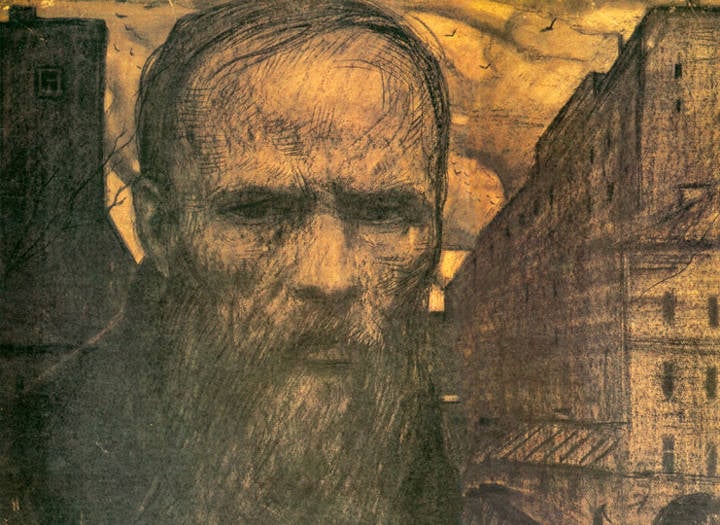
Of all the children of Dostoevsky, two elder brothers were especially close to each other. They received primary education at home, and with 1834 they studied at the boarding house of Leonti Chermak. By the way, they were very lucky with the guesthouse - the best university professors taught there. Fyodor Dostoevsky in his early years was a rather lively and inquisitive little boy - to the extent that Mikhail Andreevich frightened him with a “red cap”, that is, with the soldier’s service. However, over the years, Fyodor’s character changed; as a teenager, he preferred to “isolate himself from those around him”, with the exception of his brother Michael, who believed the most intimate thoughts. Instead of the usual for his age entertainment Dostoevsky read a lot, especially romantic writers and adherents of sentimentalism.
In May, 1837, Mikhail Andreevich, who lost his beloved wife, brought his elder sons to St. Petersburg and petitioned to identify them at the Main Engineering School. For more than half a year, the brothers studied in the boarding school of Captain Kostomarov. During this time, Mikhail showed up health problems, and he was sent to Revel to the Engineering team. Fedor, at the beginning of 1838, having successfully passed the entrance exams, entered the Engineering School, taking up the vacancy of the conductor. The future writer studied without passion, and his lack of communication grew. Fellow students noted that the young man does not live a real life, but the one that is going on in the pages of the books he reads Shakespeare, Schiller, Walter Scott ... In the second year of study in the life of Dostoevsky, trouble struck. His father, Mikhail Andreevich, having retired, settled in his estate and led a life far from decent. He acquired concubines, became addicted to drinking, and he treated his serfs too strictly and not always in fairness. In the end, in 1839, the local men killed him. From now on, Peter Karepin, the husband of their sister, Barbara, became the guardian of Dostoevsky.
Two years later, Fyodor Mikhailovich received the first officer's rank, and with it the opportunity to live outside the walls of the school. It was here that the whole economic impracticality of the young man was revealed. Receiving considerable content from Karepin, he nevertheless managed to fall into almost poverty. At the same time, his literary studies became more and more serious, and his studies at the School of Engineering became less and less successful. Having graduated from 1843 educational institution, Fyodor Mikhailovich a year later (in October 1844) with the rank of lieutenant retired. His service in the St. Petersburg team was far from outstanding. According to one legend, on the drawings made by Dostoevsky, Tsar Nicholas personally wrote: “And what a fool did he draw this?”
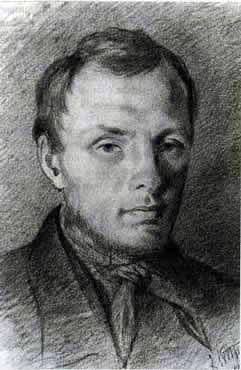 Meanwhile, the young man worked with inspiration on his first work - the novel “Poor People.” In May, Fyodor Mikhailovich 1845 introduced Dmitry Grigorovich, with whom he rented an apartment, with the fourth edition of his work. Dmitry Vasilievich, in turn, was entrusted to the circle of Vissarion Belinsky. Very soon the manuscript lay on the table of a famous literary critic, and a few days later Vissarion G. announced that the author of the work was a genius. So in the blink of an eye, Dostoevsky became a famous writer.
Meanwhile, the young man worked with inspiration on his first work - the novel “Poor People.” In May, Fyodor Mikhailovich 1845 introduced Dmitry Grigorovich, with whom he rented an apartment, with the fourth edition of his work. Dmitry Vasilievich, in turn, was entrusted to the circle of Vissarion Belinsky. Very soon the manuscript lay on the table of a famous literary critic, and a few days later Vissarion G. announced that the author of the work was a genius. So in the blink of an eye, Dostoevsky became a famous writer.The newly created writer published his first thing in the Petersburg Collection with the support of Nekrasov at the beginning of 1846. A curious fact is that a young man who was in dire need of money had the opportunity to “sell” Krayevsky’s Otechestvennye Zapiski for four hundred rubles and issue it already in the fall of 1845. However, he agreed to a delay in publication and a smaller fee (total 150 rubles). Later Nekrasov, tormented by remorse, paid Fyodor Mikhailovich another hundred rubles, but this did not change anything. It was more important for Dostoevsky to go out in the same magazine with the writers of the “Petersburg Collection”, thus he joined the “progressive direction”.
Perhaps, before Fyodor Mikhailovich there was no writer in Russia who entered literature so triumphantly. His first novel was released only at the beginning of 1846, however, in Belinsky’s then-educated environment, Belinsky’s authority was so high that one of his spoken words could put someone on a pedestal or throw him off. All autumn 1845, returning from his brother from Reval, Dostoevsky went to celebrities. The style of his message to Michael at that time was very much given by the Khlestak region: “I think my glory will never reach such an apogee as it is now. Everywhere incredible deference, terrible curiosity about me. Prince Odoyevsky asks to be happy with his visit, and Count Sologub tears his hair from despair. Panayev told him that a talent had appeared, which would scrounge everyone in the dirt ... Everyone accepts me as a miracle. I can’t even open my mouth, so as not to repeat in all the corners that Dostoevsky said something, Dostoevsky is going to do something. Belinsky loves me as much as possible ... "
Alas, this love was released a very short time. Already after the publication in February of 1846 in The Otechestvennye Zapiski (The Double), the enthusiasm of praisers noticeably decreased. Vissarion Grigorievich still continued to defend his protégé, but after a while he “washed his hands”. The “hostess”, released at the end of 1847, was already declared “scary nonsense” by him, and a little later Belinsky said in a letter to Annenkov: “We pouted, my friend, with Dostoevsky's“ genius ”!” Fyodor Mikhailovich himself was very difficult for his works. and even got sick. The situation, by the way, was aggravated by evil mockery from former friends from the Belinsky circle. If earlier they were limited to gentle teasing, now they have begun a real persecution of the writer. Especially the caustic Ivan Turgenev succeeded in it - it was at this time that the hostility of these eminent Russian writers began.
It should be noted that the bookish preferences of young Dostoevsky were not limited to the sphere of elegant literature. In 1845, he seriously became interested in socialist theories, having studied Proudhon, Cabe, Fourier. In the spring of 1846, he met Mikhail Petrashevsky. Since January, Fyodor Mikhailovich 1847, having finally broken with Belinsky and his circle, began visiting Petrashevsky's “Fridays” known all over St. Petersburg. Radical-minded young people gathered here, reading out reports on fashionable social systems, discussing international news and new books, offering new interpretations of Christianity. Young people were in wonderful dreams and often indiscreetly indulging themselves. Of course, a provocateur was present at these meetings - reports on the “evenings” were regularly laid down on the desk of the chief of gendarmes, Alexei Orlov. At the very end of 1848, several young people who were not satisfied with “idle chatter” organized a special secret circle, which set the goal of a violent seizure of power. It even came to create a secret typography. One of the most active members of this circle was Dostoevsky.
The misfortune of Petrashevists was that they pleased the king under a hot hand. The revolutions in Europe in 1848 seriously worried Nicholas, and he took an active part in suppressing any popular uprisings. The number of students was sharply reduced in the country, and there was talk about the possible closure of universities. In such conditions, Petrashevists looked like real troublemakers and rioters, and 22 on April 1849 Nicholas I, after reading another report about them, put the following resolution: “If there was only one lie, then it is unbearable and criminal in the highest degree. Do arrest. Less than a day, all the suspects were thrown into the Peter and Paul Fortress. Fyodor Mikhailovich spent eight long months alone. It is curious that while his friends went crazy and attempted suicide, Dostoevsky wrote almost the brightest of his work - the story "Little Hero".
The death penalty for "intruders" was appointed on December 22, the writer was in the second "troika". At the very last moment, a pardon was announced, and instead of being shot, Dostoevsky received four years of hard labor, "and then a private soldier." On Christmas 1850 Fedor Mikhailovich shackled out of St. Petersburg and arrived a fortnight later in the Omsk fortress, where he was destined to live the next four years in terrible, inhuman conditions. By the way, on the way to Omsk, Petrashevsky prisoners (Dostoevsky was traveling with Yastrzhembsky and Durov) secretly in Tobolsk were visited by the wives of the Decembrists, Annenkov and Fonvizin. They gave Dostoevsky the Gospel, in whose cover ten rubles were hidden. It is known that Fedor Mikhailovich did not part with this Gospel all his life.
While in the Omsk fortress, Dostoevsky wrote to his brother: “I consider these four years the time in which I was buried alive and closed in a coffin ... This suffering is endless and ineffable.” In prison, the writer experienced a spiritual coup, which led to the rejection of the romantic dreams of youth. The result of the Omsk reflections he formulated in his letters: ““ I don’t believe in Christ and confess Him as a boy, but my hosanna passed through a big crucible of doubt ... If I had been convinced that Christ is outside the truth, then I’d rather stay with Christ than with the truth. " Dostoevsky devoted his "Notes from the House of the Dead" to his convict years, surpassing the power of merciless analysis of any other work of Russian literature. In prison, it also became clear that Fedor Mikhailovich was ill with epilepsy. Unusual seizures occurred in St. Petersburg, but then they were attributed to the young man’s excessive excitability. In 1857, the Siberian doctor Yermakov dispelled all doubts by issuing a testimony to the writer that he was epilepsy.
In February, Dostoevsky's 1854 was released from the Omsk penal servitude prison and identified as a private in a battalion based in Semipalatinsk. Coming out of the "grave," the writer received permission to read and bombarded his brother with requests for literature. In addition, while serving in Semipalatinsk, Fyodor Mikhailovich became friends with two people who had brightened up his life a little. The first comrade was the young prosecutor Alexander Wrangel, who arrived in the city in 1854. The Baron gave Dostoevsky his own apartment, where the writer could forget about his heavy share - here he read books with his lips in his mouth and discussed his literary ideas with Alexander Egorovich. Besides him, Dostoevsky made friends with a very young Chokan Valikhanov, who served as adjutant to the governor-general of Western Siberia, and who, despite the short life, was destined to become the most prominent Kazakh enlightener.
Once in the “high society” of Semipalatinsk, Fyodor Mikhailovich met a local official, a drunken drunkard Isayev and his wife Maria Dmitrievna, whom he passionately fell in love with. In the spring of 1855, Isaev was transferred to Kuznetsk (today the city of Novokuznetsk), ironically, the head of the court case. He died three months later. Maria Dmitrievna was left alone in a strange city and among strangers, penniless and with her teenage son in her arms. Upon learning of this, the writer was thinking about marriage. However, this was a serious obstacle - the social position of Dostoevsky. Fyodor Mikhailovich made a titanic effort in order to overcome this, in particular, composed three patriotic odes and, through his acquaintances, transferred them to the highest state stations. Finally, in the fall of 1855, the writer was promoted to non-commissioned officer, and a year later he became an officer, who discovered his way to marriage. In February, 1857 Dostoevsky married Isaeva in Kuznetsk, and already returned to Semipalatinsk as a family man. However, on the way back, his wife witnessed a seizure that happened to her newly-made husband as a result of wedding troubles. After this, a tragic breakdown occurred in their relationship.
In March, 1859 Fedor Mikhailovich received the coveted retirement. At first, he was not allowed to live in the capitals, but soon this ban was also lifted, and in December 1859 - after a ten-year absence - the writer appeared in St. Petersburg. It should be noted that he returned to literature, while still serving in Siberia. In April, after the return of hereditary nobility to 1857, the writer was able to publish, and already in the summer, “Domestic Notes” published “Little Hero”, composed in the Peter and Paul Fortress. And in 1859, the village of Stepanchikovo and Uncle's Dream were released. Dostoevsky came to the northern capital with big plans, and first of all he needed a body to express the postulates of the “soil science” he had composed - a trend characterized by calls for a return to national, national principles. His brother Michael, who had founded his own tobacco factory by that time, had also long been willing to engage in publishing. As a result, Vremya magazine appeared, the first issue of which was released in January of 1861. The official editor was Mikhail Dostoevsky, and Fyodor Mikhailovich headed the artistic and critical departments. Soon the magazine acquired a pair of talented critics - Apollo Grigoriev and Nikolai Strakhov, who actively promoted poppy ideas to the public. The circulation of the magazine was increasing, and soon he could compete with the famous Nekrasov's Sovremennik. But it ended sadly - in May 1863 "Time" was banned. The reason for the highest decree was the article by Strakhov, who “incorrectly” interpreted the “Polish question”.
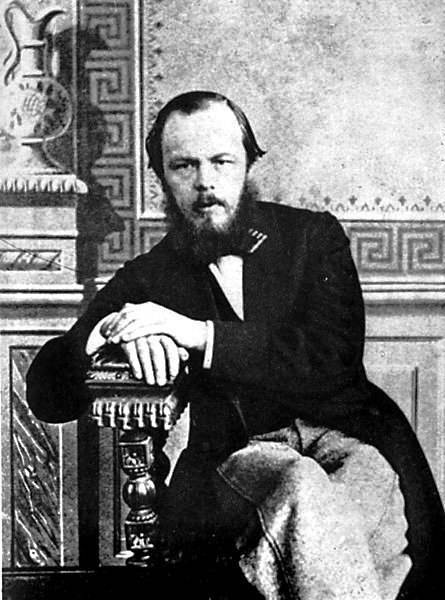 In the summer of 1862, Dostoevsky first went abroad. He has long wanted to get acquainted with the "land of holy wonders," as the writer called the old Europe. For three months the writer traveled around European countries - his tour included France, Italy, Germany, England. The impressions received only strengthened Fyodor Mikhailovich in his thoughts about Russia's special path. He has since spoken about Europe only as “a cemetery - even if it is dear to the Russian heart”. Despite this, Dostoevsky, summer and autumn of 1863, frustrated by the closure of Vremya magazine, again spent abroad. However, the trip did not bring anything good - on this journey Fyodor Mikhailovich “fell ill” by playing roulette. This passion burned the writer for the next eight years, bringing severe suffering and forcing him to play regularly. Abroad, waiting for him and the collapse of a new love affair. Two years earlier, he published in his journal stories of twenty-year-old Apollinaria Suslova, and after a while she became his mistress. In the spring of 1863 Suslova went abroad and waited for the writer in Paris. However, on the way, Dostoevsky received a message from her saying: “You are a little late”. Soon it became known that she managed to get carried away by the Spaniard-medic. Fyodor Mikhailovich offered her “pure friendship”, and they traveled together for two months, after which they parted forever. Their story Love became the basis of the novel “The Player”, once again confirming that Dostoevsky, for the most part, was an “autobiographical” writer.
In the summer of 1862, Dostoevsky first went abroad. He has long wanted to get acquainted with the "land of holy wonders," as the writer called the old Europe. For three months the writer traveled around European countries - his tour included France, Italy, Germany, England. The impressions received only strengthened Fyodor Mikhailovich in his thoughts about Russia's special path. He has since spoken about Europe only as “a cemetery - even if it is dear to the Russian heart”. Despite this, Dostoevsky, summer and autumn of 1863, frustrated by the closure of Vremya magazine, again spent abroad. However, the trip did not bring anything good - on this journey Fyodor Mikhailovich “fell ill” by playing roulette. This passion burned the writer for the next eight years, bringing severe suffering and forcing him to play regularly. Abroad, waiting for him and the collapse of a new love affair. Two years earlier, he published in his journal stories of twenty-year-old Apollinaria Suslova, and after a while she became his mistress. In the spring of 1863 Suslova went abroad and waited for the writer in Paris. However, on the way, Dostoevsky received a message from her saying: “You are a little late”. Soon it became known that she managed to get carried away by the Spaniard-medic. Fyodor Mikhailovich offered her “pure friendship”, and they traveled together for two months, after which they parted forever. Their story Love became the basis of the novel “The Player”, once again confirming that Dostoevsky, for the most part, was an “autobiographical” writer.Upon returning to his homeland, Fyodor Mikhailovich, together with his brother, strenuously bothered about permission to publish a new magazine called The Epoch. This permission was obtained at the beginning of 1864. The brothers did not have enough money, and this was reflected in the appearance of the Epoch. Despite the “Notes from the Underground” published by Dostoevsky, as well as cooperation with the editors of such a major writer as Turgenev, the magazine did not enjoy popularity among the people and a year later ceased to exist. By this time, several more tragic events had happened in Dostoevsky’s life — his wife Maria Dmitrievna, who was ill with consumption, died in April. The couple had already lived separately for a long time, but the writer took a big part in bringing up the stepson Pasha. And in July, Mikhail Dostoevsky died. The writer, having accepted all the debts of his brother, undertook to maintain his relatives.
In the summer of 1865, after the liquidation of the Epoch magazine, Fyodor Mikhailovich literally fled abroad from creditors, where he soon lost completely again. Sitting in a wretched room in a Wisbaden hotel without food and no candles, he began to write Crime and Punishment. He was rescued by his old comrade, Baron Wrangel, who sent money and invited the writer to live with him in Copenhagen, where he served at that time. In the next year, 1866, the writer stopped making advances, and he had to conclude an agreement with the publisher Stellovsky, according to which Fyodor Mikhailovich gave the literary businessman permission to publish a three-volume book of his writings for only three thousand rubles, and also promised to submit a new novel to November 1866. In a separate paragraph, it appeared that in the event of failure to fulfill the latter obligation, each of the future works of Dostoevsky would be transferred to the sole ownership of the publisher. On this occasion, in a letter to 1865 to Baron Wrangel, Fyodor Mikhailovich dropped the terrible words: “I would gladly go to penal servitude again, just to pay off the debts and feel myself free again.” And in the same letter: “Everything seems to me that I am only going to live. Isn't it funny? ” In a sense, the writer really "started" - throughout the year, the Russian Herald published Crime and Punishment. This novel opened the "five-series" series of works of Dostoevsky, who made him the world's largest writer. And the autumn of the same year brought him a truly fateful meeting, which gave Fyodor Mikhailovich a faithful companion for the rest of his life.
Acquaintance of the writer and Anna Grigorievna Snitkina happened in no way a romantic situation. Until the terrible period, which deprived Dostoevsky of the rights to his works, there were only four weeks left. In order to save the situation, he decided to hire a stenographer. The shorthand in those years was only in vogue, and one of the writer's acquaintances who taught lectures on this subject recommended Fyodor Mikhailovich his best student, a twenty-year-old Anna Grigorievna. The girl managed to complete the work on time, and at the end of October the novel “The Player” was presented to Stellovsky. And in early November, Dostoevsky made an offer to Anna. The girl agreed, and after three months in the search for the necessary funds, a wedding took place in the Izmailovsky Cathedral of St. Petersburg. In the days of post-merry merry turmoil, the newlyweds had two terrible seizures. However, this time the “Isaev's scenario” did not work - in contrast to the deceased Maria Dmitrievna, the young spouse was not afraid of the disease, remaining determined to “make her beloved person happy”. For the first time in his life, the sufferer Dostoevsky was really lucky. Anna Grigorievna, who was born in the family of a St. Petersburg official, successfully combined the features of a cheerful, but impractical father and a prudent, energetic Swede-mother. Already in childhood, Anya was reading books of Dostoevsky, and becoming the wife of a writer, she took upon herself all the economic troubles. Thanks to the diaries that Anna Grigorievna regularly conducted, the last years of Fyodor Mikhailovich’s life can be studied literally by day.
Meanwhile, the difficulties in the life of Dostoevsky multiplied. Anna Grigorievna in the family circle of the writer took hostility, did not do without scandals and his meetings with the family of the late brother Michael. In this situation, the Dostoevskys decided to go abroad. The writer took in the publishing house "Russian Bulletin" two thousand rubles as an advance for the future novel. However, his relatives insisted on “adequate” assistance, and the money disappeared. Then the young wife laid down her dowry, and in April the Dostoevsky 1867 left St. Petersburg. They wanted to stay abroad for only three months, but it turned out that their spouses returned only after four years. This time of voluntary exile was filled with the hard work of the writer (on Idiot and on Demon), terrible lack of money (which was the main reason for the constantly postponed return), moving from country to country, longing for Russia and terrible losses in roulette.
The Dostoevskys lived in Geneva, Dresden, Milan, Baden-Baden, Florence, again in Dresden. In Switzerland, 1868 in February, Anna Grigorievna gave birth to a daughter, Sonya, but three months later the child died. Dostoevsky suffered the death of his daughter, it was here that the origins of the famous "rebellion" of Ivan Karamazov lay. In January, the 1869 writer finally finished working on the novel Idiot that had tormented him. At the same time, listening to the latest news from Russia and watching the “democratic” rampage in France, Fyodor Mikhailovich conceived “Demons” - a fiery refutation of revolutionary practice and theory. This work "Russian Gazette" began to print in January 1871. By that time (in September 1869) another child was born to Dostoevsky - daughter Lyuba. And in the middle of 1871, the writer miraculously healed himself forever from his craving for roulette. Once Anna Grigorievna, having noticed that after the next seizure, her husband was suffering from depression, she herself suggested that he go to Wiesbaden to try his luck. Dostoevsky, having lost as usual, upon arrival reported about the disappearance of the “vile fantasy” and promised never to play again. Having received another transfer from Russky Vestnik, Fyodor Mikhailovich took the family home, and at the beginning of July the Dostoevsky 1871 arrived in St. Petersburg. And a week later, Anna Grigorievna gave birth to a son, Fedor.
Learning about the return of the writer, lenders revived. Dostoevsky was threatened with a debt prison, but his wife took over everything and, having managed to find the right tone in relations with creditors (I must add, very aggressive), she achieved a deferment of payments. At the same time, Anna Grigorievna protected her husband from financially insatiable relatives. Nothing more prevented the writer from doing what he loved, but after the end of The Possessed he took a breather. Wanting to change the type of activity for a while, Fedor Mikhailovich in 1873 took up the editing of the ultraconservative weekly “Citizen”. The Writer's Diaries, which were constantly renewed between the writing of novels, appeared in it. Later, when Dostoevsky left “Citizen”, “Writer's Diaries” were published in separate issues. In fact, the writer founded a new genre, which meant communicating with readers "directly." Separate stories and stories, memories, responses to recent events, reflections, travel reports appeared in the Diaries ... Feedback was also working smoothly — Fyodor Mikhailovich received a lot of letters, many of which were made topics for the next issues. By the way, in 1877 the number of subscribers of the Writer's Diaries exceeded seven thousand people, which is quite a lot for Russia at that time.
It is curious that the highest manifestation of human genius Dostoevsky all his life considered the “Sistine Madonna” of Raphael. In the autumn of 1879, Countess Tolstaya — the widow of the poet Alexei Tolstoy — found a photo of this Rafaelev masterpiece in full size through Dresden friends and presented it to the writer. The joy of Fyodor Mikhailovich had no boundaries, and since then the Sistine Madonna has always hung in his office. Anna Grigorievna recalled: "How many times have I found him standing in front of this great picture in deep emotion ...".
Having conceived another novel titled "The Teenager", Dostoevsky did not converge with the editors of "Russian Gazette" in the amount of the fee. Fortunately, Nikolai Nekrasov, an old acquaintance of the writer, showed up on the horizon, proposing to publish the novel in Fatherland Notes, where they agreed to all the author's demands. And in 1872, the Dostoevskys left for the first time for a summer vacation in Staraya Russa. Starting this year, they constantly rented there a two-story country house of Colonel Gribbe, and after his death at 1876, they acquired it as property. So for the first time in his life Fedor Mikhailovich became a homeowner. Staraya Russa was one of his "pivotal" points - the "geography" of the writer in the seventies was exhausted by a rented apartment in St. Petersburg and a dacha. There was also Ems, where Dostoevsky traveled four times to be treated with local mineral waters. However, in Ems he did not work well, the writer was honored by the Germans, he was homesick for his family and was looking forward to the end of the course. In Staraya Russa, he felt completely different, this provincial town in the Novgorod province gave Fyodor Mikhailovich enormous literary “material”. For example, the topography of the "Brothers Karamazov" entirely written off from these places. And in 1874, the Dostoevskys stayed in the country for the winter, spending almost a year there without a break. By the way, in 1875 their family was already five people - in August, Anna Grigoryevna presented her husband with one more boy, Alyosha.
In May, the 1878 family of Dostoevsky suffered a new tragedy. Alyosha died, who was not even three years old. The writer went mad with grief, according to Anna Grigoryevna: “He loved him somehow especially, with an almost painful love, as if he felt that he would soon lose it. Especially Fedor Mikhailovich was oppressed by the fact that his son died from epilepsy - a disease inherited from him. ” In order to distract her husband, Anna Grigorievna initiated the family's relocation to a new apartment in Kuznechny Lane, and then persuaded Dostoevsky to go on a trip to Optina Pustyn, a monastery near Kozelsk, where the traditions of old age were strong. In case of a sudden seizure, she picked up her husband and companion - the young philosopher Vladimir Solovyov, who was the son of a famous historian. In the monastery, the writer had a number of lengthy conversations with the elder Ambrose, who was later listed by the Church as a saint. These conversations made the deepest impression on Fyodor Mikhailovich, and the writer used the individual features of Ambrose's father in the form of the elder Zosima from The Brothers Karamazov.
Meanwhile, the writer's fame grew in Russia. In February, 1878 was elected a corresponding member of the Academy of Sciences. In 1879-1880, Russky Vestnik published The Brothers Karamazov, which caused a great resonance in the educated environment. Dostoevsky was constantly invited to speak at various events, and he almost never refused. The youth looked at him as a “prophet”, addressing the most burning issues. In April, 1878 Dostoevsky in a letter “To Moscow students” said: “To come to the people and stay with them, first, you need to unlearn how to despise them, and second, you need to believe in God.”
In June, 1880 in Moscow, the opening of the monument to Pushkin. Noisy celebration on this occasion could not do without a famous writer, and he, having received an official invitation, arrived at the event. Read "Speech about Pushkin", in which Fyodor Mikhailovich expressed his most sincere thoughts, was accompanied by almost "madness" of the public. Dostoevsky himself didn’t expect such a furious success - the only short speech delivered by a broken voice didn’t make a very long speech for a short time to reconcile all social movements, forcing yesterday’s opponents to embrace. According to Dostoevsky himself: “The hall was in hysterics - strangers between the public were crying, crying, hugging and swearing to each other to become better ... The meeting was upset - everyone rushed to the stage: students, grand ladies, state secretaries - everyone hugged and kissed me ... Ivan Aksakov announced that my speech is a whole historical event! From now on, fraternity will come, and there will be no misunderstanding. ” Of course, no fraternity happened. The very next day, having come to their senses, people began to live as before. And yet, a similar moment of social unity was worth a lot, at this moment Fyodor Mikhailovich reached the top of his lifetime glory.
It is necessary to tell about the history of the relationship of Turgenev and Dostoevsky. Having become acquainted with 1845, a year later they were already sworn enemies. Subsequently, when Fyodor Mikhailovich returned from Siberia, their hostility began to decline, Ivan Sergeyevich even published in the journal of the Dostoevsky brothers. However, the communication of the writers continued to be ambiguous - each meeting ended with a new confrontation and rift. They were completely different - in artistic preferences, in political convictions, even in psychological organization. We must pay tribute to Turgenev - at the end of Dostoevsky's speech at the Pushkin feast, he was among the first to step on the stage and put his arms around him. However, the next meeting of the writers returned the outstanding masters of the word to the “initial positions”. Having relaxed on Tverskoy Boulevard, Fyodor Mikhailovich, noticing Turgenev approaching, threw him: “Moscow is great, but you cannot hide from you!”. More they have not seen.
New (1881) year Dostoevsky met in a very cheerful state of mind. He had many plans - to continue the publication of the Writer's Diaries, to write a second novel about the Karamazovs. However, Dostoevsky managed to prepare only one January issue of the Diaries. His organism has exhausted the released vital forces. Everything has affected - hard labor, inhuman living conditions, poverty, epilepsy seizures, years of work on wear, abnormal routine - even in Siberia, Fyodor Mikhailovich was accustomed to nightlife. As a rule, the writer got up at one o'clock, had breakfast, read to his wife what was written at night, strolling, had dinner, and closed in the office in the evening and worked until six in the morning, constantly smoking and drinking strong tea. All this could not but affect his health and without it is not brilliant. On the night of 6 on 7 February, 1881 from Dostoevsky was bleeding from the throat. Doctors were called, but the patient's condition continued to deteriorate, and 9 died in February. A great multitude of people gathered to lead the great writer on his last journey. Fyodor Mikhailovich was buried at the cemetery of the Alexander Nevsky Monastery.
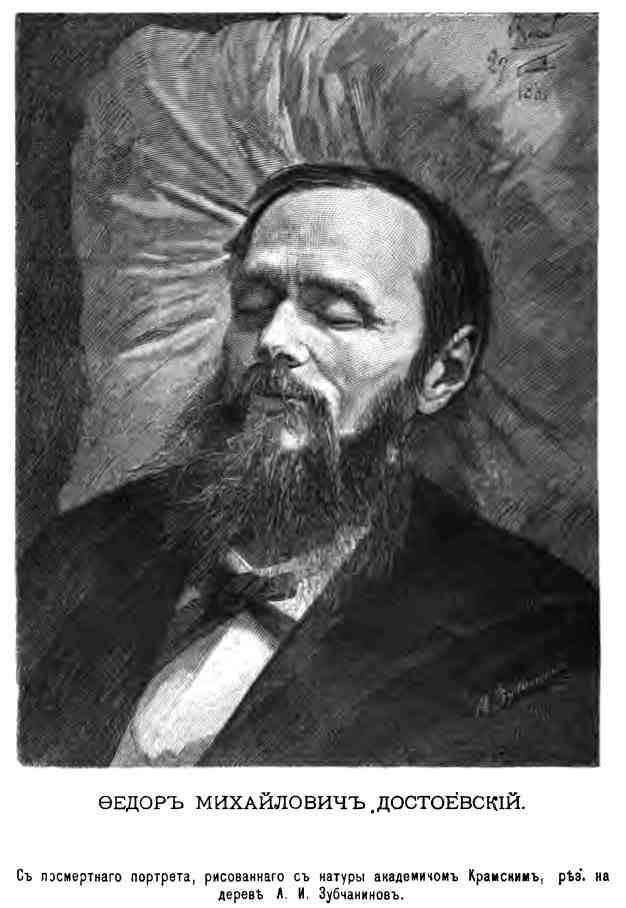
The triumphal procession of Dostoevsky throughout the world took place in the last century. The works of the genius writer were translated into all languages and published in huge editions, many films were shot and many performances were staged. The success of Fyodor Mikhailovich’s work is extraordinarily capricious, and it is often not at all clear what explains the popularity of his work in a particular country. It seems that everything is different - and history, and organization, and the psychology of the inhabitants, and religion, - and suddenly Dostoevsky becomes almost a national hero. This, in particular, happened in Japan. Most prominent Japanese writers (including Haruki Murakami) proudly declare their apprenticeship to an outstanding Russian novelist.
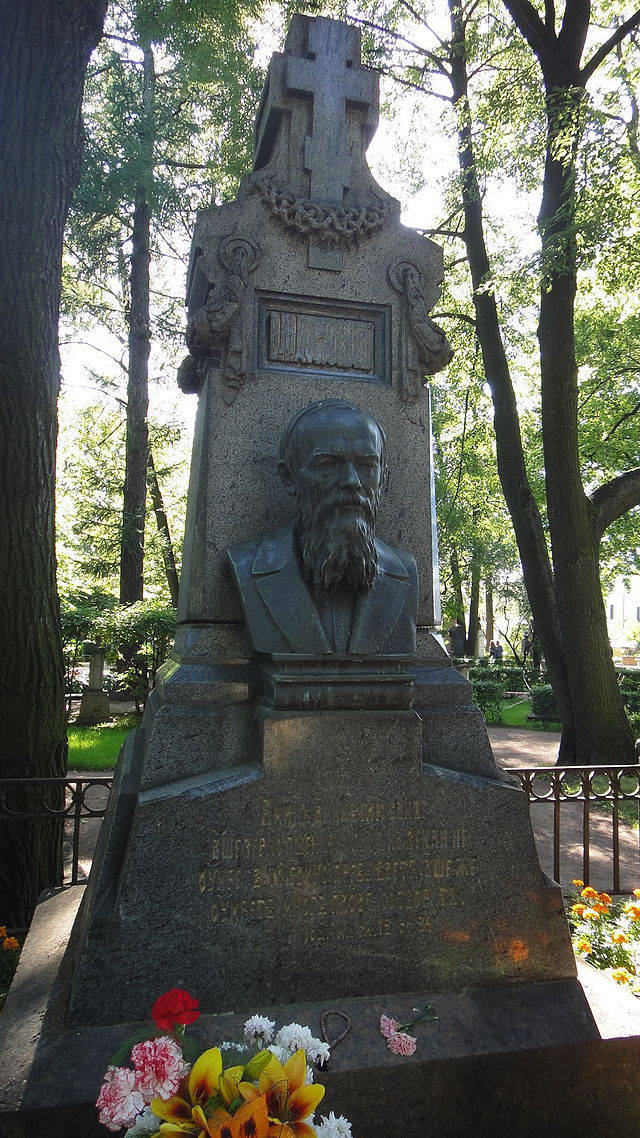
Based on materials from the site http://www.fdostoevsky.ru/ and the weekly edition “Our History. 100 great names.
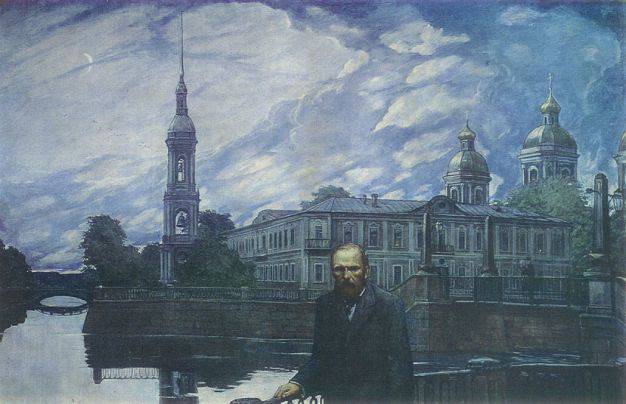
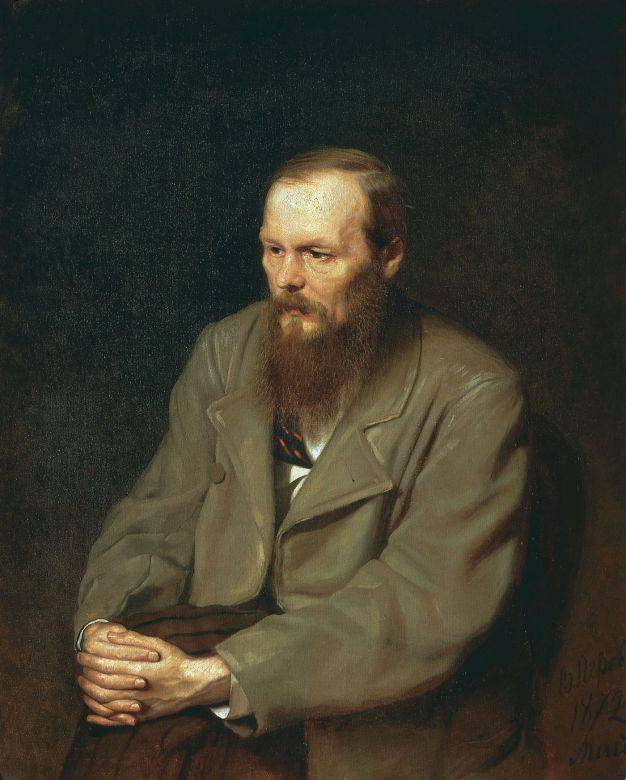
Information